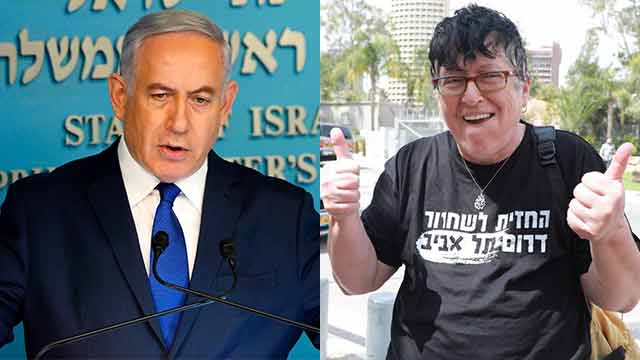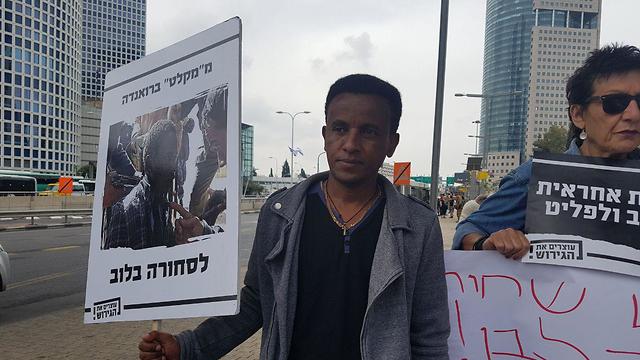

PM, south TA residents mull upping cash incentives for migrants to leave
After Netanyahu meets with activists pushing for deportation of illegal African migrants, details of plan remain unclear but PM is urged to bypass High Court's decision to prohibit forced deportations by increasing cash incentives from $3,500 to $10,000, while eyes remain firmly fixed on mass removals.
They noted, however, that the details of the migrants’ fate remain vague and a plan for removing them from Israel was still to be discussed.
The meeting was held after Netanyahu outraged supporters of the deportation policy by announcing an unexpected decision Monday night that he was replacing the plans to deport the migrants with a deal struck with the United Nations, according to which the latter would work to reach agreements with different Western countries to take in at least 16,250 of the Sudanese and Eritrean asylum seekers.
“It was a huge shock for us. We felt like the state had spat in our faces,” said representatives of south Tel Aviv.
At the opening of the two-hour meeting in the Kirya IDF headquarters with the angry residents, headed by Sheffi Paz, Netanyahu informed them that he had once again reversed his position and had decided not only to suspend the UN deal, but annul it altogether.
“We realized that the meaning (of the UN deal) was that the infiltrators would remain in south Tel Aviv for a lot longer and that our problem would not be solved,” the residents said.
However, while Netanyahu’s latest decision was welcomed by the representatives at the meeting, they were also eager to flesh out the details of how the migrants could now be removed from the neighborhood.
“Mr. Prime Minister, since the deal has now been canceled, what now? What will you do with the infiltrators?” Netanyahu was asked.
No specific answer was provided, but the prime minister responded that his staff were exploring an array of options in a bid to formulate another solution.
He also emphasized that any framework would have to be accepted by the High Court of Justice, which in the past had already struck down plans to deport the migrants against their will.
According to Paz, a long-time activist for the deportation scheme, four fundamental decisions were taken at the meeting.
“The entire agreement with the UN has been canceled. We are going back to deportations. We are starting to think outside the box for solutions in case the High Court blocks the deportations, and there will be a rehabilitation of south Tel Aviv,” Paz said.
Suzi Cohen, a member of the Tel Aviv City Council, expressed her satisfaction with the overall outcome of the meeting.
“We are going back to deporting them to a third country. After the bitter news that we received yesterday about the agreement, there was a great meeting today. There is going to be full cooperation with us. After what I heard, I believe Netanyahu 200 percent. After this big crisis, the smile has returned to our faces,” Cohen said.
Tel Aviv’s Deputy Mayor, Arnon Giladi, also expressed his amazement that Netanyahu “understood the magnitude of the mistake he made yesterday and I praise him for the important decision he took.
“I have no doubt that with our joint strength, we will succeed in removing from south Tel Aviv tens of thousands of infiltrators that constitute a terrible and intolerable burden for the senior residents of the neighborhood,” he continued.
Chairwoman of the Hatikva Neighborhood Committee, Shlomo Maslawi described the meeting as “good” and said that it “answered all our expectations.”
“He understood that he made a fatal mistake and he reversed it. We made a few recommendations, including giving the infiltrators $10,000 instead of $3,500.”


















